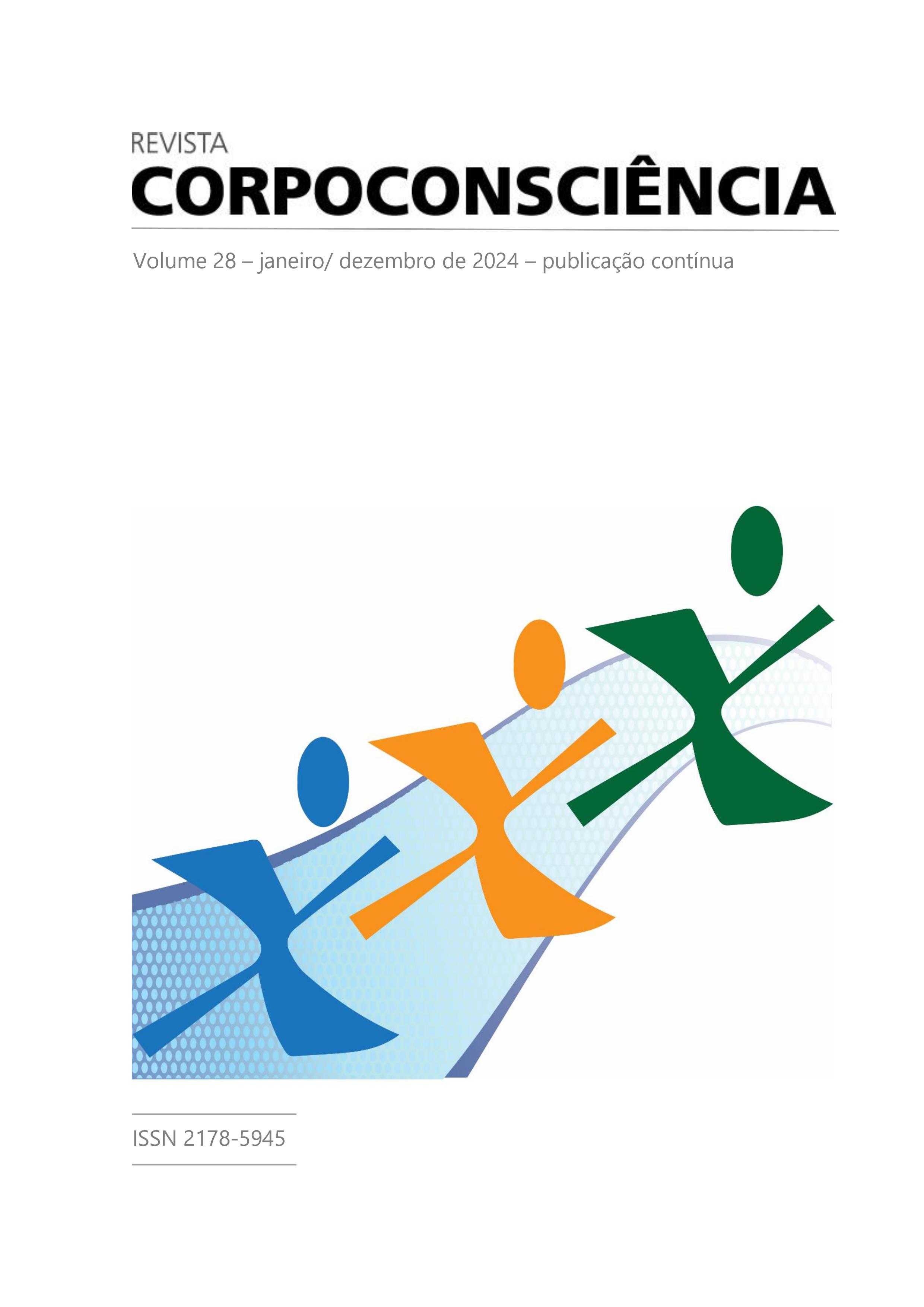FOOTBALL PLAYED BY WOMEN IN URUGUAY
GENDER PERSPECTIVE AND DISCOURSES THAT INTERVENE ON THE ROAD TO PROFESSIONALIZATION
DOI:
10.51283/rc.28.e17996Keywords:
Football, Women, Gender, Professionalisation, MarketAbstract
Through the gradual increase in the participation of women in Uruguayan football, a dispute for their own space to represent them began to take shape, initiating a process of demands for decent conditions and rights as workers-footballers, which had as a relevant fact the initiative of one of the most recognised sports institutions in the country, the Club Nacional de Football, as the one in charge of the creation of a plan for the professionalisation of football played by women. The general objective of this research was to understand the different political perspectives of those who participate in women's football and who support the discourse of professionalisation, in order to analyse what kind of logics are intended to be reproduced by this process. To this end, research was carried out during the period from 2018 to 2024, through media observation, interviews with women footballers, the Organisation of Uruguayan Women Footballers and the Uruguayan Football Association, with a theoretical framework that sought to interweave social and cultural studies on sport with the gender perspective.
References
ARCHETTI, Eduardo. Fútbol y ethos. Buenos Aires, Argentina: Facultad Latinoamericana de Ciencias Sociales, 1984.
BROHM, Jean Marie. Sociología política del deporte. Ciudad de México: Fondo de Cultura Económica, 1982.
BUTLER, Judith. El género en disputa: el feminismo y la subversión de la identidad. Barcelona, España: Paidós, 1990.
BEAUVOIR, Simone de. El segundo sexo. Buenos Aires, Argentina: Siglo XX, 1981.
FIFA. Fútbol femenino en la FIFA: estrategia de fútbol femenino. 2022. Disponible en: <https://es.fifa.com/womens-football/stra>. Acesso em: 22 ago. 2022.
FIFPRO sudamérica. Nosotras Jugamos. Estudio sudamericano de fútbol feminino. 2023. Departamento de Administración. Facultad de Economía y Administración. Universidad de Chile. Disponível em: <https://fifpro.org/es/quienes-somos/miembros-de-fifpro/una-encuesta-inedita-de-fifpro-sudamerica-entre-futbolistas-revela-las-condiciones-del-futbol-femenino-en-la-region>. Acesso em: 15 ago. 2023.
FIGUEIREDO, Tiago. O futebol feminino no campo esportivo. En: PEREYRA, Bruno Mora. Deporte y sociedade: encontrando el futuro de los estudios sociales y culturales sobre deporte. Montevideo, Uruguay: Universidad de la Republica, 2018.
FIGUEIREDO, Tiago. Processo de institucionalizacao do futebol femenino no Uruguai. En: Recorde, v.12, n. 2, p. 1-22, 2019.
FÚTBOL FEMENINO URUGUAYO. Proclama del 3 de julio de 2023. 2023. Disponible en: <https://mufp.uy/wp-content/uploads/2023/07/PROCLAMA.pdf>. Acceso em: 22 ago. 2023.
GARTON, Gabriela; HIJÓS, Nemesia. A battlefield for gender equality. Revista NACLA. 2018. Disponible en: <https://nacla.org/news/2018/07/31/battlefield-gender-equality>. Acesso em: 20 jul. 2024.
GARTON, Gabriela. Fit girls: corporeidad, identidad y género en las representaciones de mujeres futbolistas. Revista de filosofía bajo palabra. 2016. Disponible en: <https://doi.org/10.15366/bp2017.16>. Acesso em 20 jul. 2024.
GUBER, Rosana. El salvaje metropolitano. Buenos Aires, Argentina: Paidós, 2004.
GUTIÉRREZ, Alicia. Bourdieu y las prácticas sociales. Córdoba, Argentina: Universidad de Córdoba, 2005.
HANG, Julia. Deporte y violencia(s). Disputas de sentido en torno a la categoría “violencia de género” en el fútbol argentino. Cuestiones criminales, v. 5, n. 9, p. 76-99, 2022.
HIJÓS, Nemesia; FERNÁNDEZ, Analía. Otro fútbol es posible. Revista anfibia. 2019. Disponible en: <http://revistaanfibia.com/cronica/otro-futbol-es-posible/>. Acesso em: 20 jul. 2024.
HIJÓS, Nemesia. Todos los cuerpos, una misma cancha. Revista bordes. 2020. Disponible en: <http://revistabordes.unpaz.edu.ar/todos-los-cuerpos-una-misma-cancha/>. Acesso em: 20 jul. 2024.
IBARRA, Elizabeth. Apuntes sobre un trayecto posible: fútbol, mujeres y disidencias desde las epistemologias feministas. Revista ensambles, v. 7, n. 7, p. 87-101, 2020.
MAJUL, Débora. El fútbol en agenda. Debates y horizontes desde la militancia feminista. Aposta. Revista de ciencias sociales, n. 99, p. 78-95, 2023.
PEKER, Luciana. La revolución de las hijas. Buenos Aires, Argentina: Paidós, 2019.
PIMENTEL, Lucía. Volando sobre tierra: investigación sobre el fútbol practicado por mujeres en Uruguay. 2018. 51f. Tesis (Licenciatura en Sociología). Universidad de la República, Montevideo, Uruguay, 2018.
RUIZ Jorge. Fútbol femenino: ¿rupturas o resistencias? Lúdica pedagógica, v. 2, n. 16, p. 30-38. 2011.
SAMPIERI, Roberto; FERNANDEZ COLLADO, Carlos; BAPTISTA, Pilar. Metodología de la investigación. Ciudad de México, México, McGraw-Hill, 2010.
SCOTT, Joan. El género: una categoría útil para el análisis histórico. LAMAS, Marta (Comp.). El género: la construcción cultural de la diferencia sexual. Ciudad de México, México: Bonilla Artigas, 1996.
SOTO-LAGOS, Rodrigo. Identidad deportiva en Chile: un proceso sociocultural y material marcado por el estado y el neoliberalismo. Movimento, v. 26, p. 1-14, 2020.
SONSOL, Alberto. Tuya Y Mía. Radio El espectador. 810 AM Montevideo, Uruguay, 2018.
Downloads
Published
How to Cite
Issue
Section
License
Copyright (c) 2024 Corpoconsciência

This work is licensed under a Creative Commons Attribution 4.0 International License.
Autores que publicam nesta revista concordam com os seguintes termos:
- Autores mantém os direitos autorais e concedem à revista o direito de primeira publicação, com o trabalho simultaneamente licenciado sob a Creative Commons Attribution License que permitindo o compartilhamento do trabalho com reconhecimento da autoria do trabalho e publicação inicial nesta revista.
-
A Revista Corpoconsciência da Universidade Federal de Mato Grosso está licenciada com uma Licença Creative Commons - Atribuição 4.0 Internacional. Baseado no trabalho disponível em https://periodicoscientificos.ufmt.br/ojs/index.php/corpoconsciencia/index.
- Autores têm autorização para assumir contratos adicionais separadamente, para distribuição não-exclusiva da versão do trabalho publicada nesta revista (ex.: publicar em repositório institucional ou como capítulo de livro), com reconhecimento de autoria e publicação inicial nesta revista.
- Autores têm permissão e são estimulados a publicar e distribuir seu trabalho online (ex.: em repositórios institucionais ou na sua página pessoal) a qualquer ponto antes ou durante o processo editorial, já que isso pode gerar alterações produtivas, bem como aumentar o impacto e a citação do trabalho publicado (Veja O Efeito do Acesso Livre).





